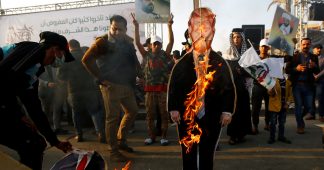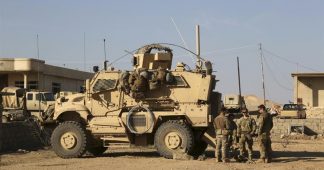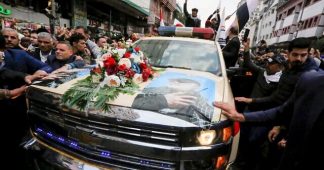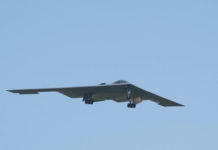The Shadow Commander
Last February, some of Iran’s most influential leaders gathered at the Amir al-Momenin Mosque, in northeast Tehran, inside a gated community reserved for officers of the Revolutionary Guard. They had come to pay their last respects to a fallen comrade. Hassan Shateri, a veteran of Iran’s covert wars throughout the Middle East and South Asia, was a senior commander in a powerful, élite branch of the Revolutionary Guard called the Quds Force. The force is the sharp instrument of Iranian foreign policy, roughly analogous to a combined C.I.A. and Special Forces; its name comes from the Persian word for Jerusalem, which its fighters have promised to liberate. Since 1979, its goal has been to subvert Iran’s enemies and extend the country’s influence across the Middle East. Shateri had spent much of his career abroad, first in Afghanistan and then in Iraq, where the Quds Force helped Shiite militias kill American soldiers.
Shateri had been killed two days before, on the road that runs between Damascus and Beirut. He had gone to Syria, along with thousands of other members of the Quds Force, to rescue the country’s besieged President, Bashar al-Assad, a crucial ally of Iran. In the past few years, Shateri had worked under an alias as the Quds Force’s chief in Lebanon; there he had helped sustain the armed group Hezbollah, which at the time of the funeral had begun to pour men into Syria to fight for the regime. The circumstances of his death were unclear: one Iranian official said that Shateri had been “directly targeted” by “the Zionist regime,” as Iranians habitually refer to Israel.
At the funeral, the mourners sobbed, and some beat their chests in the Shiite way. Shateri’s casket was wrapped in an Iranian flag, and gathered around it were the commander of the Revolutionary Guard, dressed in green fatigues; a member of the plot to murder four exiled opposition leaders in a Berlin restaurant in 1992; and the father of Imad Mughniyeh, the Hezbollah commander believed to be responsible for the bombings that killed more than two hundred and fifty Americans in Beirut in 1983. Mughniyeh was assassinated in 2008, purportedly by Israeli agents. In the ethos of the Iranian revolution, to die was to serve. Before Shateri’s funeral, Ayatollah Ali Khamenei, the country’s Supreme Leader, released a note of praise: “In the end, he drank the sweet syrup of martyrdom.”
Read more at https://www.newyorker.com/magazine/2013/09/30/the-shadow-commander











